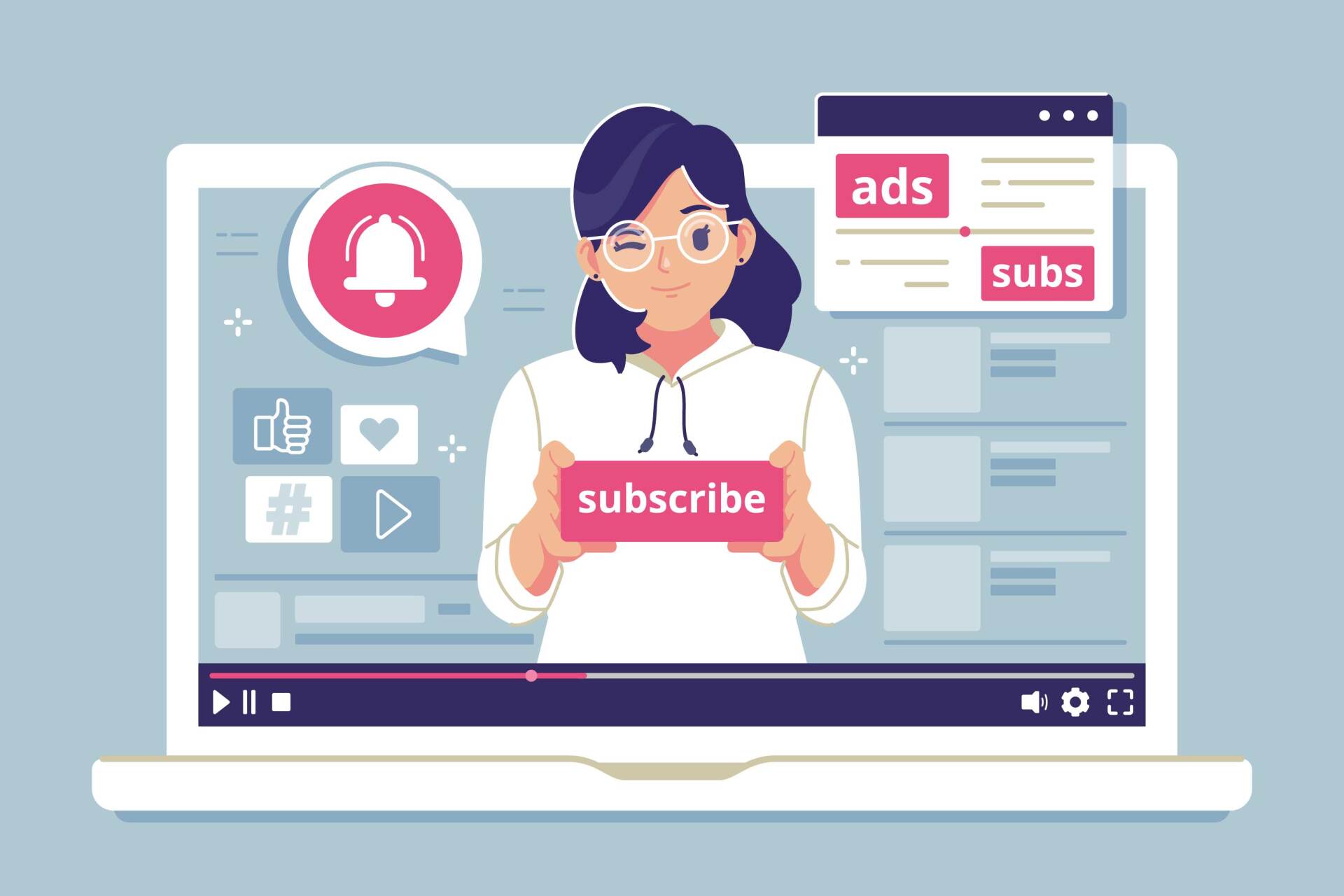digital marketing funnel
THE MODERN DIGITAL MARKETING FUNNEL: EXPLAINED
What is Digital Marketing Funnel?
A digital marketing funnel is a great visualization of the process of converting leads into loyal customers. From a marketing and sales perspective, sales funnels involve the steps that visitors need to undergo before becoming your clients. The main objective of the digital marketing funnel is to increase leads and nurture them through the right purchasing decision. It's fundamental to note that your target customers will become fewer as they go through the lead conversion process. This is the key reason why the lead conversion process is termed as marketing sales funnel. There are numerous strategies that'll help you convince more visitors to purchase your product or service. For instance, you can advertise your product to new audiences, create unique and high-quality content, improve brand awareness, and add inbound marketing. Targeting a wider audience improves your odds of converting potential clients into customers.
Stages of a Digital Marketing Funnel
1. Awareness
Awareness is the first and essential stage of the digital marketing funnel. At this stage, your main goal is to attract your potential audience through the right digital marketing strategies. Some of the main ways of improving brand awareness in a competitive market include:
- Trade shows
- Creating valuable content that focuses on your target audience
- Advertising
- Social media campaigns
- Events and media mentions
- Trade shows
- Direct mail and webinars
- Optimizing your website using the right SEO strategies
This stage focuses on lead generation. Leads are stored in the lead management system, thus nurtured to other stages of a digital marketing funnel.
2. Interest
In this stage, your potential clients will learn more about your product or service. Learning more about your brand determines the purchasing decision of your target audience. This is because your target clients have concrete information about the quality and type of your product. Essentially, more leads will find out more information about your business. The main goal of the interest stage is to build a great relationship between the prospects. To optimize results in the interest, your brand should have a responsive and attractive web design. In addition, a marketer should become more authoritative and nurture potential clients through communication and targeted content.
3. Consideration
In this stage, leads become more knowledgeable about their main problems and the right solutions to the problems. In addition, leads becomes aware that your product can provide the best solutions to their underlying problems. In the consideration stage, your potential buyers gain the status of marketing qualified leads. Therefore, they are termed, prospective customers. However, there are some odds that prospective buyers can seek other alternative solutions to their main problems. A marketer will improve the chances of retaining qualified leads in various ways. For instance, a marketer should share more information about the product or service. In addition, the marketer can nurture qualified leads with studies, free trials, and Target content. Using the right approach to nurture your prospective customs will help them choose your brand over your competitor's brand.
4. Intent
The intent stage involves prospects who are willing and interested to buy a product or service from your brand. An interested prospective buyer will place your product's brand in a cart, particularly in online shopping. In addition, the intent stage gives you a golden opportunity to showcase why your product or service stands out. In order to obtain a competitive advantage, your product should be unique, original, and have the ability to solve your prospect's problems.
5. Evaluation
The evaluation stages allow prospective customers to make sound decisions. Leads will decide whether or not to buy a product from your brand. At the evaluation stage, the sales and marketing team will opt for the most suitable strategy that'll nurture the prospects' decisions. Below are some of the key strategies for convincing prospects to purchase your product:
- Timeless advice
- Conversational pointers
- Improve your confidence
- Sequence your questions strategically
- Mirror your prospect
- Affirm your prospect's questions and concerns
- Dramatize your ideas
- Avoid filler words
- Establish yourself as a professional
- Give your prospect a limited number of choices
Effective use of the above-listed array of techniques will play a vital role in convincing your leads to purchase your product.
6. Purchase
The purchase stage is the final stage where a prospect has made the final decision to purchase a product or service from a certain brand. The purchase stage shows that your product is the ideal solution to your lead's underlying problems. In this stage, your prospective customers will be converted into loyal customers. The purchase stage is essential because it determines traffic in your business. Happy clients will refer their colleagues, friends, and family members to your business. Therefore, it's important to make your prospects more comfortable. Below are some tips for making your prospective buyers more happy and comfortable:
- Offer high-quality products
- Offer great customer experience
- Being transparent
- Reach the client or customer with the best deals
- Address your prospect with respect
- Interact regularly with your prospects
Using the above-mentioned tips will power up the awareness stage, and the digital marketing funnel starts again.
Types of Digital Marketing Funnel
The digital marketing funnel involves the non-linear path of buyers, from business to customers. Your prospective buyers will take various routes; therefore, there are three main types of the digital marketing funnel.
a. Looping Digital Marketing Funnel
This type of digital marketing sales funnel involves six stages which include awareness, consideration, research, purchase, post-purchase experience, and loyalty loop. The looping marketing funnel is more flexible.
b. Hourglass Digital Marketing Funnel
This type of digital marketing funnel involves a complex and detailed customer journey to purchase a product from a particular brand. The main objective of this type of online marketing funnel is to build and maintain great customer relationships. The hourglass online marketing funnel involves two distinct components: pre-purchase and post-purchase components. The pre-purchase component involves stages, such as engagement, education, research, evaluation, justification, and purchase. On the other hand, the post-purchase component involves stages, such as adoption, retention, expansion, and advocacy. The pre-purchase stages are non-linear, whereas the post-purchase stages are linear. For instance, a prospective buyer can identify an underlying problem before your brand. Or else, leads can identify your brand while analyzing and evaluating your competitor's product.
c. Micro-Moment Digital Marketing Funnel
This type of online marketing funnel focuses on motivating and increasing leads. The main components of this marketing funnel include:
- Want to know moment
- Want to do moment
- Want to go moment
- Want to buy moment
The micro-moment funnel ignores the actions of your prospects, particularly when compared to looping and hourglass online marketing funnel.
Benefits of Digital Marketing Funnel
i. Brand Awareness
A brand that optimizes customer satisfaction will improve traffic because prospects will be seeking solutions to their problems. The new online marketing funnel helps your target audience to obtain more information about your product. Brand awareness plays a significant role in improving your firm's productivity.
ii. Improve Conversion Rates
Educating your target audience more about your product or service is an essential strategy that'll help you convert visitors into loyal customers. There are numerous ways you can use to retain converted customers, such as educate them on the main benefits of your product, offer discounts, and offer free product trials.
iii. Helps a Business Attain a Competitive Edge
Some marketers will focus on the last stages of the digital marketing funnel, but that isn't the right track. Following the entire online marketing funnel will help you gain more knowledge about the behavior of your target audience. You'll, therefore, use the right strategies that'll drive traffic to your business, thus making you stand out. In addition, attaining a competitive advantage will help your business achieve a larger market share.
iv. Building Trust
Sharing your brand's details with your prospects plays a significant role in building trust. Trust is a key element that potential buyers require when finding the right solution to their problem. Adding value to your target audience builds trust because new visitors will identify the professional aspect of your business.
v. Create Assets For the Sales Team
Creating more time for your sales team is an important aspect. Your sales team has a unique sales funnel. An online marketing funnel helps your target audience to gain more info about your product. This gives your sales team peace of mind while marketing because they won't take long to explain your brand. Time management will help your sales team to convert more leads than anticipated.
vi. Improves the Odds of Customer Retention
Offering a product the fulfills your clients' tastes and preferences based on providing the best solution to their problems. Your prospective buyers will become your loyal customers. In addition, satisfied customers will refer more people to your business. Interactions between a marketer and a buyer have a great impact on customer retention. In addition, loyalty is another essential factor that'll help your customers to make repeated purchases. There are several ways you can use to build a productive relationship with your customers. For instance, you can create a series of emails to educate your customers about the benefits, features, and updates of your products. In addition, you can use email marketing to inform your customers about your new product in the market. To save time and money, use automated email tools with features, such as welcome emails and drip emails. Note that you need to nurture your prospective buyers even after making a purchase.
Tips for Reaching Prospects In Any Stage of the Digital Marketing Funnel
1. Focus on More than Metrics
Data is important when it comes to digital marketing. Analyzing and evaluating data will help you track the progress of your digital marketing strategy. In addition, you'll obtain first-hand information about the tastes and preferences of your target audience. A marketer should not only focus on the data but also business objectives and target market. Below are the key things you should focus on rather than data.
- User Interactions
User interaction is the behavior that your potential buyers tend to have when interacting with your business. User interactions can either happen offline or online. User Interactions provides essential insights into how your target audience engages with your services, products, or company.
- User Intent
When developing your business content marketing strategy, social media campaigns, or website redesign, you should think about your target market intent. Fulfilling the expectations of your prospects plays a significant role in converting leads into customers. Therefore, it's important to perform in-depth research on your target market wants, especially in every single stage.
- Gross Margins
Analyzing and evaluating gross margin within a certain period of time will help you understand the reliability of your marketing strategy. Gross margin determines the total revenue that your firm retains. Therefore, gross margin can determine your firm's profitability and productivity. In addition, calculating the gross margin and profit margin will help you obtain more insights into your online marketing funnel. According to research, your pricing model has a great impact on your gross margin.
- Revenue
A firm should determine its revenue as a measure of the effectiveness and efficiency of the online marketing funnel.
- Profit Margin
Profit margin is the difference between the total revenue and total cost. In order to obtain a profit margin, the total revenue should be more than the total cost. Gaining more information about your firm's profit margin will help you identify suitable strategies that'll lower the operation costs, thus optimizing profit.
2. Market to the Ideal Prospects
Narrowing your potential audience is a great technique that'll increase leads. It's important to perform research on your firm's ideal shopper. Targeting the right audience will help your business experience increased traffic within a short span. In addition, focusing on the right audience will improve your firm's return on investment.
3. Use Artificial Intelligence and Machine Learning
Recently, due to technology advancements, artificial intelligence and machine learning are two essential aspects. This is because AI and machine learning simplifies the process of analyzing and evaluating data. Other benefits of this technique include predicting user intent, personalizing user experiences, discovering content and keyword opportunities.
4. Leverage Brand Value
It's important to show your target audience that you understand their problems and your product is the solution. Understanding more information about your potential clients will help you maximize revenue, sales, and conversions. In addition, improve brand loyalty to retain more customers. There are various tips on leveraging your brand's value, such as:
- Understand what your prospects need from your service or product
- Learn the tastes and preferences of your target market
- Determine how your firm aligns with prospect's expectations
- Decide how your service or product fulfills your buyer's tastes and preferences.
In conclusion,
The ultimate goal of a great marketer is to increase the conversations rate and maximize profit. There are numerous benefits of a digital marketing funnel; therefore, it's important to opt for it because it's a key to your business's success.
Revisit a section
- What is Digital Marketing Funnel
- Stages of a Digital Marketing Funnel
- 1. Awareness
- 2. Interest
- 3. Consideration
- 4. Intent
- 5. Evaluation
- 6. Purchase
- Types of Digital Marketing Funnel
- a. Looping Digital Marketing Funnel
- b. Hourglass Digital Marketing Funnel
- c. Micro-Moment Digital Marketing Funnel
- Benefits of Digital Marketing Funnel
- i. Brand Awareness
- ii. Improve Conversion Rates
- iii. Helps a Business Attain a Competitive Edge
- iv. Building Trust
- v. Create Assets For the Sales Team
- vi. Improves the Odds of Customer Retention
- Tips for Reaching Prospects In Any Stage of the Digital Marketing Funnel
- 1. Focus on More than Metricsa
- 2. Market to the Ideal Prospects
- 3. Use Artificial Intelligence and Machine Learning
- 4. Leverage Brand Value







